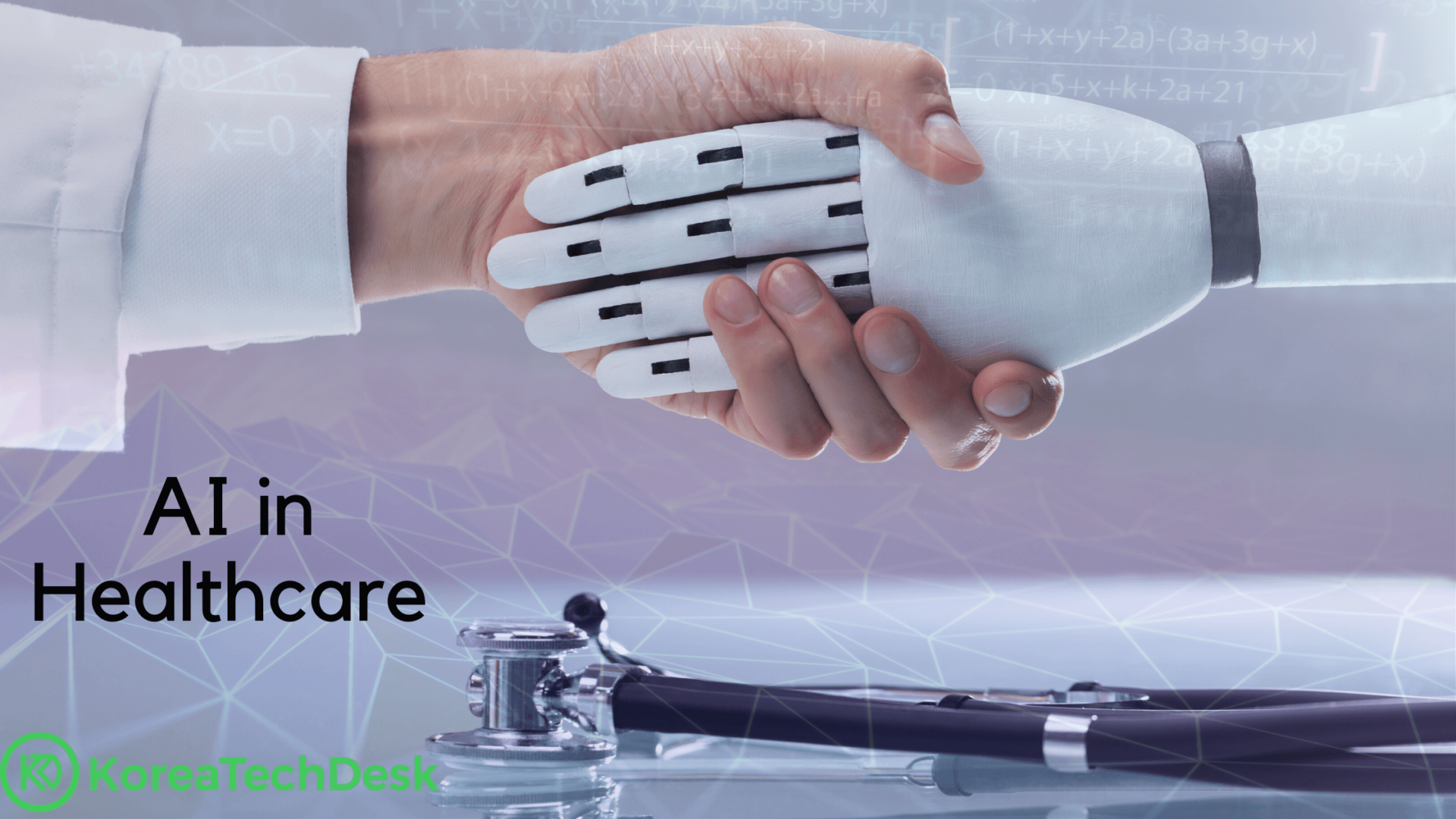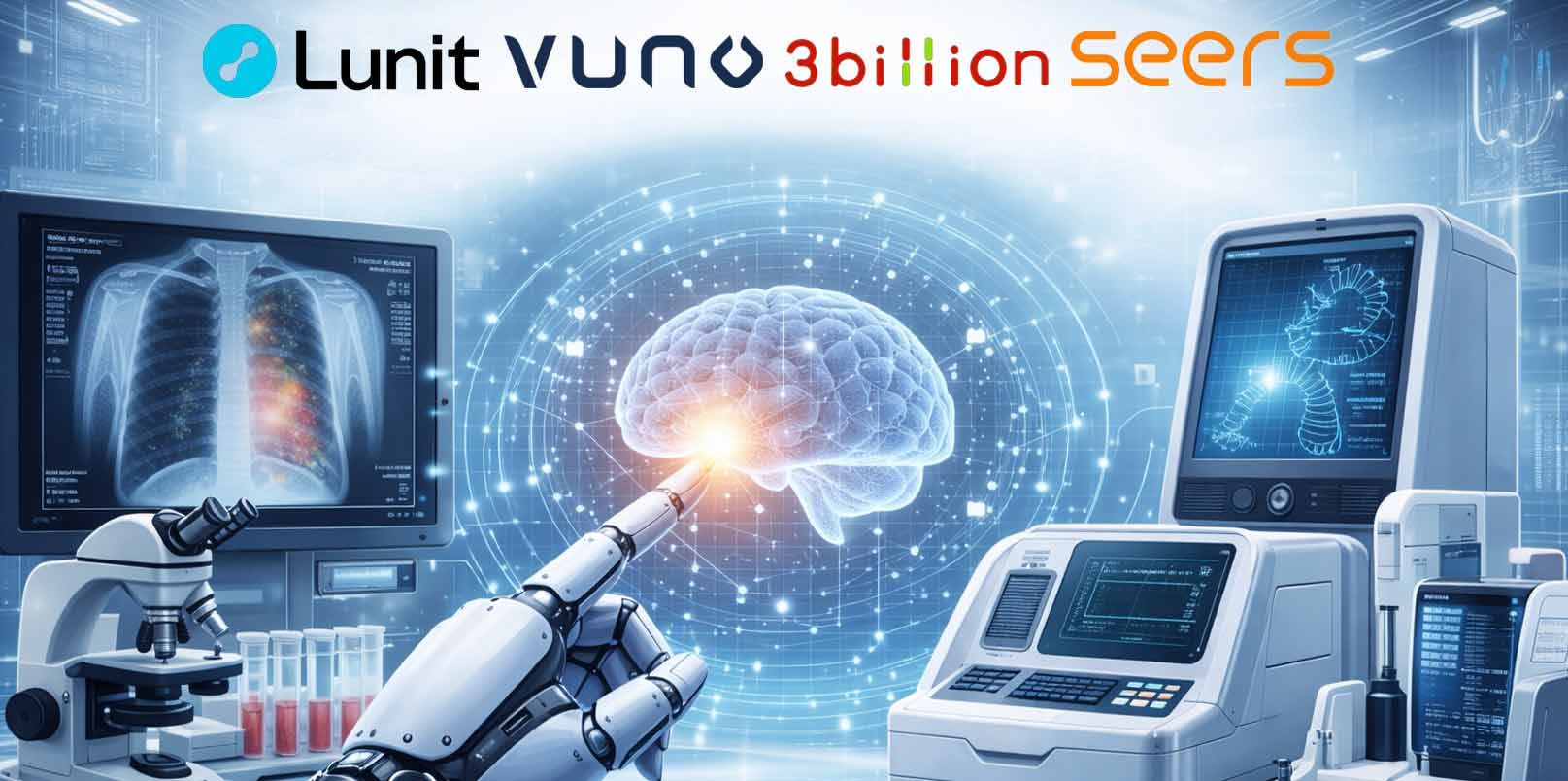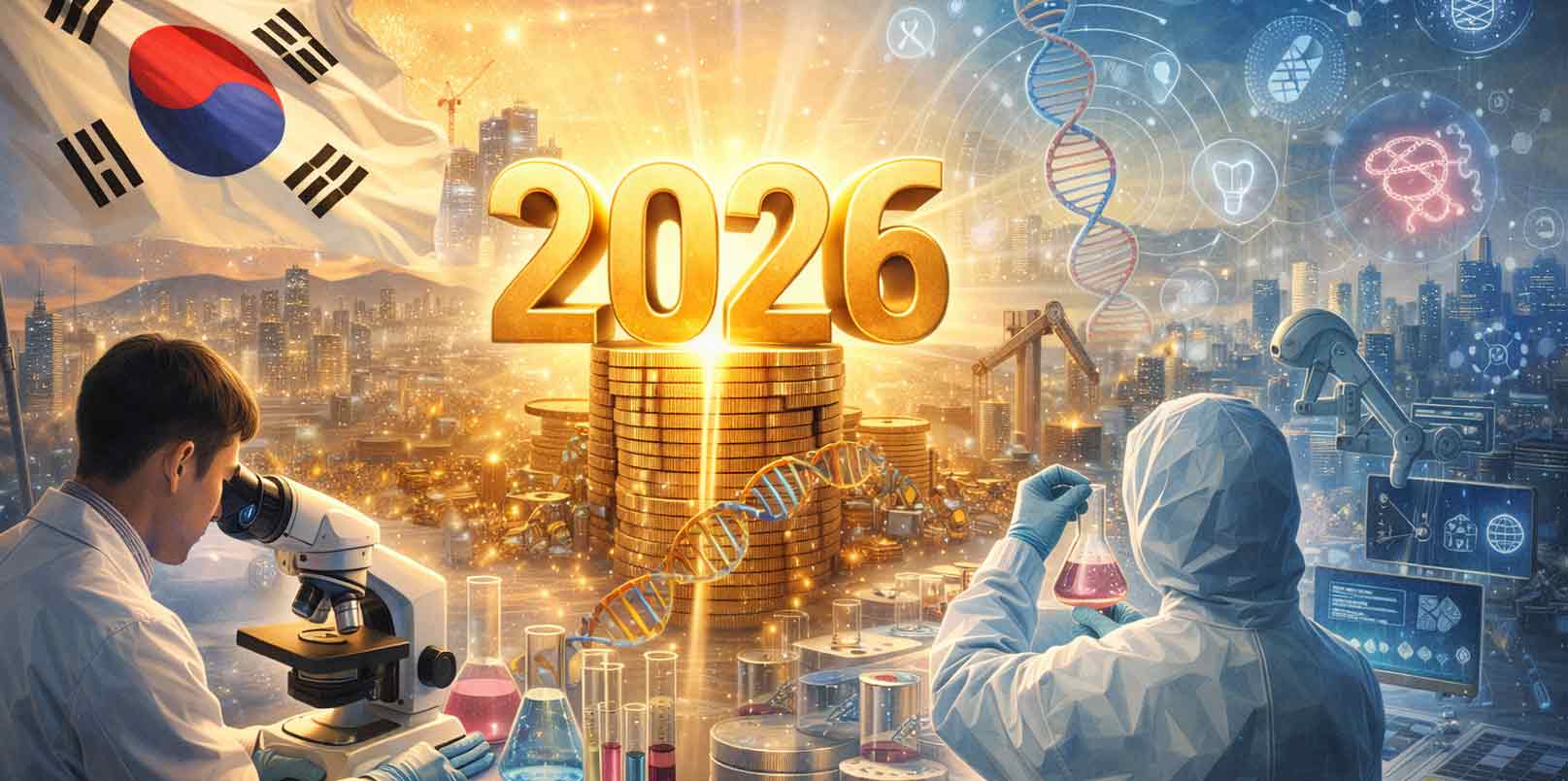Artificial Intelligence is proving to be a boon for the medical industry by providing solutions that can save time, effort and ultimately save lives. Enterprising Korean startups are developing various AI-drive solutions that can help the health industry better diagnose diseases and manage medical treatments. In fact, some of their solutions are proving to be much useful in diagnoses of COVID-19 patients.
Koreatechdesk.com lists five such emerging startups that are making a difference in the health-tech world.
The startup helps stroke survivors and people with neurological and musculoskeletal injuries worldwide. It makes rehabilitation fun and effective by providing gamified and innovative smart rehabilitation solutions that can be done virtually. Neofect’s smart products are particularly helpful for stroke survivors who have lost the ability of their motor senses. Neofect was founded in June 2010 by Hoyoung Ban and Scott Kim, two students from the University of Virginia’s Darden Graduate School of Business, and Young Choi, MS, Ph.D. of the University of Southern California, who majored in ‘stroke rehabilitation algorithm and robotics.’
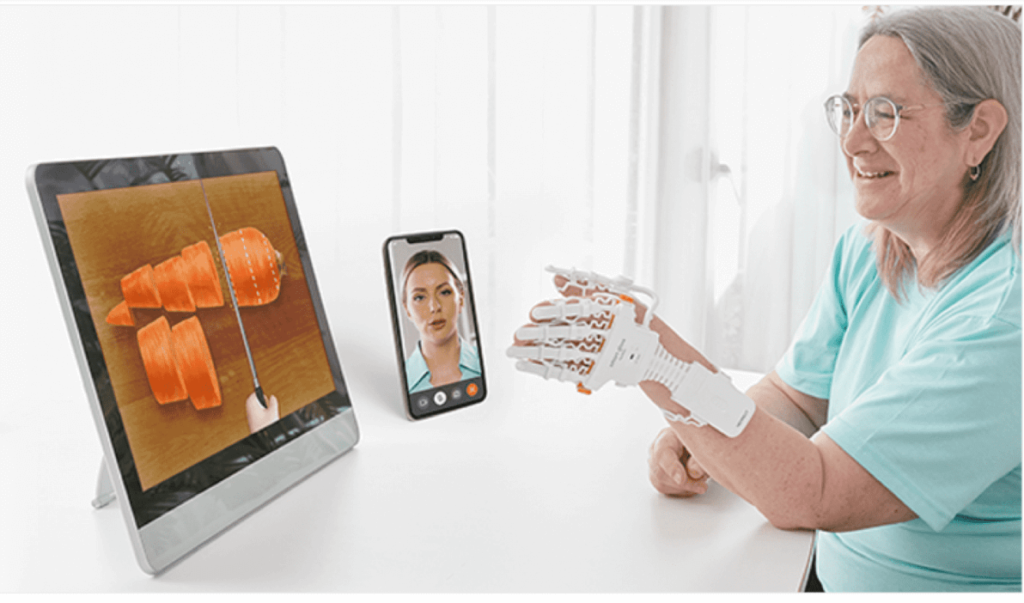
Neofact’s flagship product, the RAPAEL Smart Glove, was released in 2014 and has helped many regain mobility of their arms. Neofect’s game-based rehabilitation solutions deliver more engaging, quantifiable therapy to improve cognitive, hand, arm, and leg function, while its robotic orthosis creates an artificial grip to increase hand mobility. The startup supplies its products for hospital and home use. It recently launched a new lower-body rehabilitation device – Neofect Smart Balance that uses Augmented Reality to help patients recovering from a stroke, ambulatory injuries, and other lower body disabilities regain function in their legs.
2) VUNO
The AI-driven startup has been developed products and systems that can pre-warn emergencies, especially cases like cardiac arrests, strokes, etc. VUNO, which was founded in 2014, offers AI-based medical solutions for doctors and patients. It’s Deep Learning-based Early Warning System (DEWS) developed in collaboration with Sejong Hospital helps healthcare staff by predicting the chances of a hospitalized patient having a cardiac arrest within 24 hours. The model predicts the risk of cardiac arrest by using data of four vital signs, including blood pressure, heart rate, breathing rate, and body temperature.
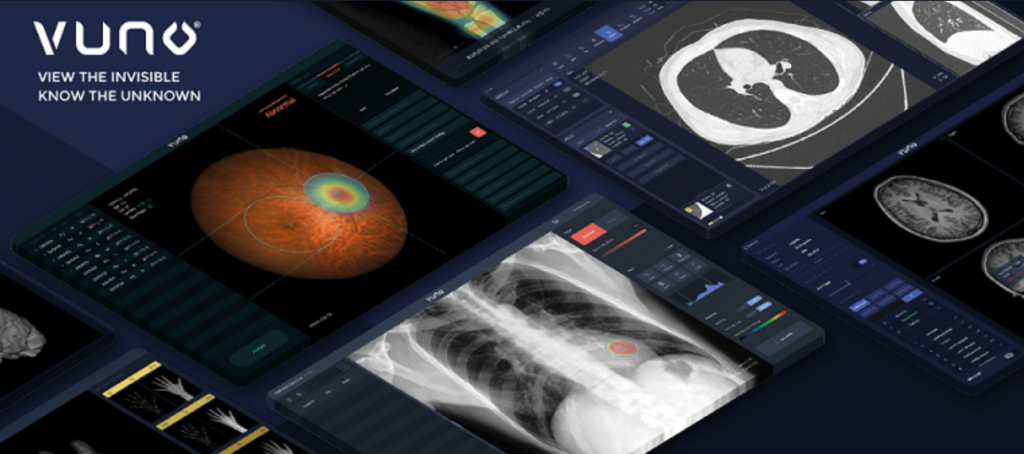
VUNO’s Deep Triage and Acuity Scale or DTAS, an AI-based emergency patient classification software, helps medical staff assess the emergency situation in visiting patients. The startup’s other products include system for BoneAge measuring, Chest X-Ray support, screening solution for abnormalities in fundus of the eye and pulmonary lung nodule and detection.
VUNO is supported by an advisory board consisting of radiologists and medical scientists. The startup has reached more than ten major hospitals in Korea to develop ideas on numerous possibilities made through co-development, clinical trials, and verification.
The AI-driven startup wants to set high standards for data-driven medical care with its services. Lunit wants to especially focus on fighting cancer, which is the number one killer disease in the world. The startup has developed AI-powered solutions for cancer diagnostics and therapeutics that can save time and save lives. The startup was founded in 2013 by Anthony Park, Donggeuon Yoo, Jungin Lee, Kyunghyun Paeng, Minghong Jang, and Sunggyun Park.

In times of COVID-19, one of Lunit’s flagship products, the Lunit Insight CXR (Main Lung Abnormality Diagnosis Assistant AI Software),is being used in Brazil, Indonesia, Italy, France , Portugal, Panama, Korea and 10 other countries for suspected COVID-19 patients.
Seoul-headquartered Lunit raised 30 billion won ($26 million) in its Series C funding round backed by venture capital firms InterVest, IMM Investment, Kakao Ventures, and China’s Legend Capital this year. Lunit plans to use its new investment for global expansion of its chest X-ray and mammography products and its other AI solutions.
4) Healciron
The smart healthcare startup’s AI-driven solutions are proving to be great resources in times of COVID-19. The company develops ultrasound diagnostic devices and a platform that uses Artificial Intelligence. Healcerion’s wireless portable ultrasonic device SONON is a useful device for onsite diagnosis. It can be easily used with a disposable cover for patient diagnosis, instead of MERS or CT scanning, which require more time and effort.
The startup has been selected by the Seoul Metropolitan Government as a pioneering company to lead the medical industry in the ‘Post Corona’ era.
Healcerion was selected for an online investment forum by Seoul City’ Cities Against Covid-19 (CAC)Global Summit 2020′ that connects startups with global investors.
Healcerion is also selected for the overseas industry-academic cooperation program of the ‘2020 Excellent Enterprise Research Institute (ATC+) project’ hosted by the Ministry of Trade and Industry. The startup is set to work with the Harvard Medical School MGH CSB (Massachusetts General Hospital Center for Systems Biology) and Gachon University Gil Hospital Cardiovascular Research Center, to develop and improve the existing products.
5) TomoCube
This high-tech startup based in South Korea is dedicated to delivering products that can enhance biological and medical research through novel optical solutions that can assist researchers and scientists in understanding, diagnosing, and treating human diseases. TomoCube’s HT-1 is a high-resolution microscope that allows users to view live cells in real-time in 3D/4D, without labelling.
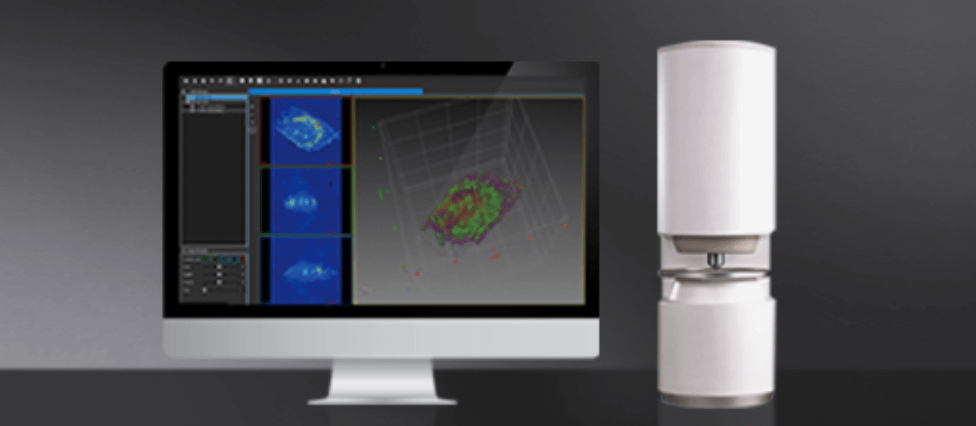
TomoCube’s platform enables researchers to measure nanoscale, real-time, and dynamic images of individual living cells without sample preparation. The startup, founded in 2015, is dedicated to delivering products that can enhance biological and medical research and will be soon launching its improved HT-2 version.


